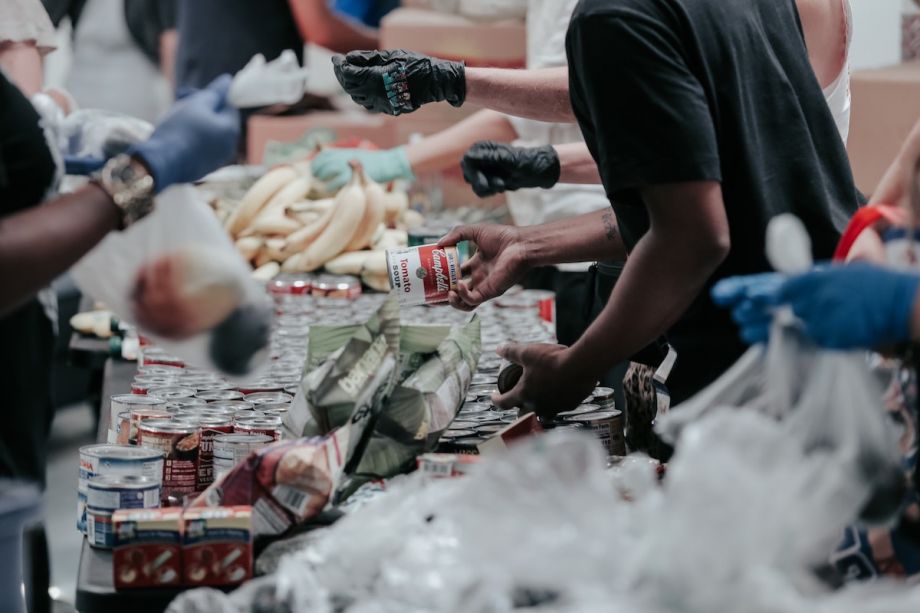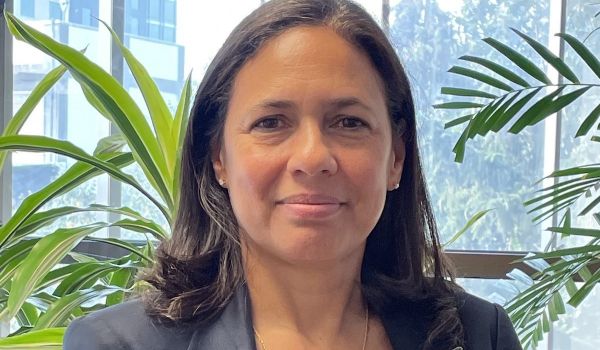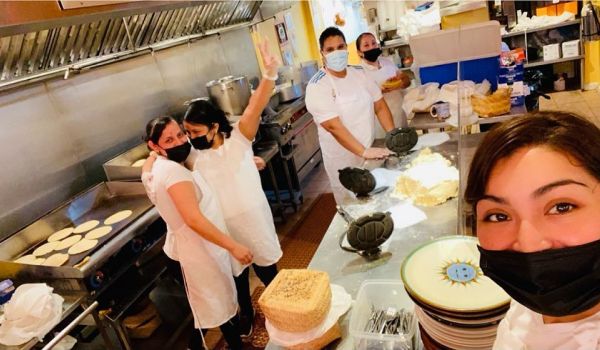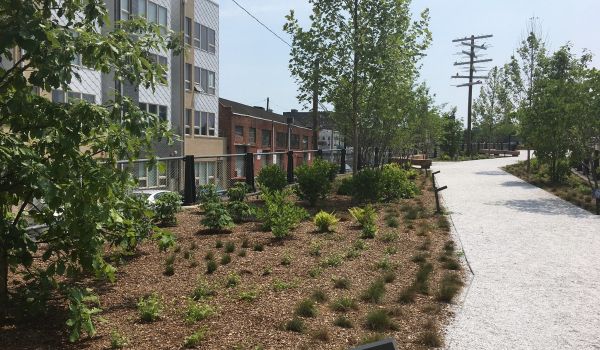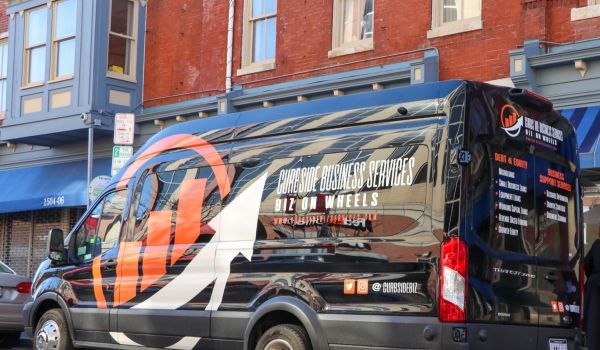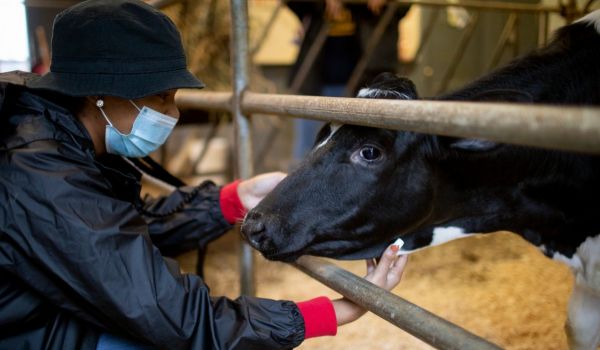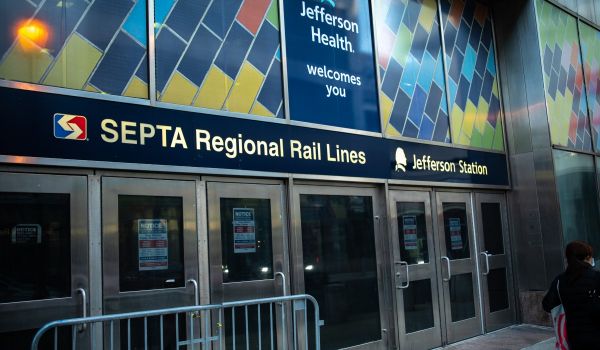This story was originally published by Analyst News, an international news organization focused on justice and social issues.
Fresh out of an abusive relationship, Andrea O’Reilly was ready to give her twin boys a new life. But facing a cost of living crisis atop a personal crisis, the prospect of buying the basics they would need — clothes, bottles, bouncers, a changing table, a baby monitor, car seats, strollers and more — was daunting.
That’s when the Philadelphia mom decided to try her neighborhood Buy Nothing group, where hundreds of locals gave away and exchanged items for free. “I went to the Buy Nothing [Facebook] page and the compassion and generosity of everyone was amazing,” says O’Reilly, who asked to be quoted under a pseudonym amid a legal battle for custody of her children. Not only did community members provide everything she needed at the time for free, they continued to keep an eye out for anything that might be useful. Some dropped off snacks and toys unprompted.
Founded in 2013 as an experiment by anti-waste advocates Rebecca Rockefeller and Liesl Clark, the Buy Nothing Project was created to help communities reshape their relationship with stuff — and with one another.
A decade later, that simple idea has snowballed into a growing network of 7 million members across thousands of tight-knit local groups, helping usher in a broader movement of more conscious consumption, radical reuse and low-waste lifestyles.
Read more: Are Buy Nothing Groups Really Free?
“The main motivation for most members of these groups is to reduce waste for a variety of reasons, whether it’s environmental or they simply don’t want to throw their belongings away because of an attachment and would rather see it go to someone else,” says Gaelle Bargain-Darrigues, whose doctoral research at Boston College focuses on the spread of such online gifting communities that give away and exchange everyday items locally.
But the founders believe the initiative has the ability to transform an increasingly consumerist society.
“Our vision for the Buy Nothing Project is to have a hyperlocal gift economy in every community on Earth within the next five years, so neighbors can give, ask and share their gratitude with each other daily,” co-founder Liesl Clark tells Analyst News. “This is how we hope to bring about social, economic and environmental change.”
Community connection through mutual aid
Indeed, in joining such groups, participants quickly begin to tap into something deeper.
“People found that after a while of using the groups and witnessing all the generosity and seeing all the comments, it made them feel like they were part of a community,” says Bargain-Darrigues.
Beyond sustainability and convenience, Buy Nothing groups — hosted on Facebook or the project’s own app — emphasize that all exchanges must be free. “All gifts must be given without any strings attached and without any expectation of reward other than the joy of giving,” read the Buy Nothing Project’s official rules.
But they don’t call it philanthropy: “We are a gift economy, not a charity. We see no difference between want and need, waste and treasure.”
The online gift economy has taken off with a variety of manifestations, including the nonprofit Freecycle (where Buy Nothing’s founders met), Facebook Marketplace and so-called “mommy groups,” where mothers offer up items their own children have outgrown. Members connect and give away their things to others who could use them or put out requests for items they are specifically interested in finding.
The impact of watching these connections unfold, some users say, makes these groups even more valuable than their environmental, economic and anti-consumerist utility.
“While most participants aren’t looking for long-lasting community connections, the sense that their neighbors are helping one another or being generous does contribute to a sense of belonging to a neighborhood where people are kind and willing to help each other,” Bargain-Darrigues says.
Seeing and experiencing strangers’ compassion and collaboration can help build a strong sense of communal belonging — and even, researchers have found, encourage individuals to pay forward the kindness that they’ve witnessed.
“Being knit into a local web of sharing in which we each play a vital role is more fulfilling than the lonely hoarding of stuff for our own private use,” Buy Nothing’s cofounders Rockefeller and Clark write in their 2021 book. They describe their vision for an alternative global economy of interconnectedness, reminiscent of how trees tap into a network of fungi to exchange resources. “Buying everything disconnects us from one another; Buying Nothing plugs us in.”
Neighborhood gift economies offer a blueprint for rebuilding our social fabric at a time when Americans’ trust in institutions, and in one another, is at an all-time low. Americans’ sense of isolation and hopelessness, meanwhile, is alarmingly high: In 2021, about 36% of Americans reported feeling “serious loneliness.” It’s a finding that has led researchers at Harvard’s Making Caring Common Project to urge “reimagining and reweaving our social relationships,” and remembering “that we have commitments to ourselves, but we also have vital commitments to each other, including to those who are vulnerable.”
Bringing people together
Lori Frankel Sussman, an event planner turned stay-at-home-mom, knows firsthand the power of the Buy Nothing movement to bring neighbors together.
After a recent pantry clean-out, she posted a photo on her local Buy Nothing group of a few excess items: pancake mix, peanut butter, diced peaches, yeast, hot sauce. “This looks like a Food Network challenge!” one neighbor joked in the comments. When group members piped in with potential meal ideas, Sussman suggested they both divide the items, cook a meal and post the results for the group to vote on.
“I was amazed at what they came up with from random items from my pantry cleanup, and it was really entertaining,” she says. Her simple post turned into a local cooking competition complete with judges, with nearly 70 neighbors cheering contestants on and voting on a winning meal: A spicy peanut pork belly and peach empanada with peach salsa, plus chocolate and peanut butter-glazed donuts and homemade peach ice cream for dessert.
“Even though I’m vegetarian, that’s the one I’d want to try,” one commenter voted. “Bravo!!! This was so much fun,” another wrote.
Such wholesome exchanges, Sussman says, are the norm for the “warm, welcoming, community in our Buy Nothing group.”
Exchanging of used items was once confined to thrift stores, yard sales and trash-day curb hauls. It’s now easy to search for used items, often being given away for free, in an online neighborhood group or on an app. Social media brings the garage sale to your phone — and allows users to rethink what’s worthy of donation.
“Online gifting groups extend the boundaries of what people are willing to give and take, such as open food or even home cooked food, hygiene products, and a bunch of random things that would never be accepted in donation centers,” Bargain-Darrigues says.
More recently, the Buy Nothing Project has worked to harness its power to deliver humanitarian aid to vulnerable individuals. When one woman in Hartford, Connecticut, requested sewing machines for newly resettled Afghan refugee women on her local Buy Nothing group, she was able to collect and distribute 25 working sewing machines within a few weeks. In 2015, Clark, one of the Buy Nothing Project co-founders, tapped into the movement’s networks to deliver medical and rescue supplies directly to Nepalese villages after a 7.8 magnitude earthquake hit the country in 2015 and bureaucratic red tape tied up foreign aid.
“We’ve seen many times that the special strength of Buy Nothing communities is meeting specific personal wants and needs, so that people who have lost everything get just what they’re looking for to start building back,” the Buy Nothing Project says on its site.
Back in Philadelphia, O’Reilly’s neighborhood group proved the adage that it takes a village to raise a child.
Once her custody battle is sorted out, she says, she hopes to host a party and invite over all the women who showed her “community, compassion and strength” while she was going through a difficult time.
“This is the best use of social media I have seen in a very long time,” she says.
Saira Bajwa is a deputy editor at Analyst News. She lives in Philadelphia, where she works as a product associate at the Solutions Journalism Network. She earned a master’s degree in media studies and media management from The New School in New York City. She has also worked in marketing and communications at a number of nonprofits.

